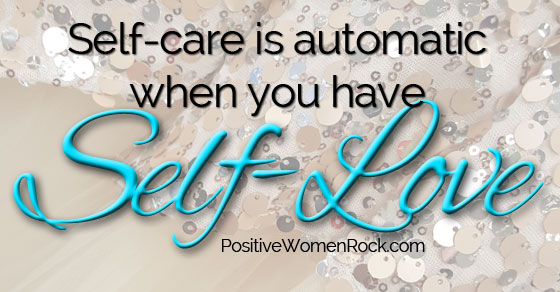And 5 facts to make self-love easier!
I really want you to be able to develop self-love, but the mental push-back can feel impossible to overcome!
I’ll give you a heads-up on the behind-the-scenes of the challenge so you can better understand and navigate the issue.
Because when you truly love yourself, your entire life improves:
You believe you are completely lovable — in or out of a relationship, during a bad breakup, or with a dozen failed first dates in the past month.
You feel worthy of your dreams — even when you have made huge mistakes, have hurt someone inadvertently, or played small all your life up until now.
You know beyond a doubt you are smart enough, good enough, attractive enough, and talented enough (here’s the kicker) WITHOUT the approval of others.
Self-love is truly loving who and what you are without reservation. When you achieve it, you always feel loved unconditionally, even if others don’t love you. You value yourself highly even when others reject or discount you.
Your self-confidence is solid, even when no one else believes in you.
You respect yourself regardless of other peoples’ opinions.
And you have a healthy self-image no matter your shape or weight.
You magnetize confident, authentic, loving people into your life, business, friendships, and the world, because that’s what YOU are.
I want you to develop self-love because with it, you can create a life you love, even if it doesn’t look perfect on the outside. Your health is better, money circumstances improve, and miracles seem to drop in your lap.
You feel valuable, lovable, and emotionally healthy…because YOU ARE.
So, here are five things you need to know about why learning self-love is so tough:
1. We are told that self-care equals self-love.
Self-love is not created by treating yourself to a regular massage, candles in the tub, or taking a yoga class to round the edges of a jagged day at work.
Those are self-care activities.
And if you feel guilty or selfish spending the time and money on yourself, you end up feeling worse and LESS lovable in the long-run.
When you love who you are, you don’t need lists or reminders of when or how to care for yourself. It comes naturally just as it does for anyone else you love.
And you don’t cause people you love sleepless nights or beat them up for the smallest mistake…but I’ll bet you’ve done that to yourself. Am I right?
You deserve to be cherished, first by you and then by others.
2. We have a profound belief that self-love is the same as being selfish or egotistical.
There’s a crazy catch-22 when it comes to loving yourself.
Here is what I find when I Google self-love:

This is a “new” definition that seems to be healthy, empowering and doable… or so it seems.
But then, an old belief sneaks in…
Here’s what I get when I look up self-love synonyms in Microsoft Word:

This is the old belief that goes back generations and was automatically passed down to you (like DNA) by your ancestors.
With each generation, beliefs snowball and gain momentum. This one makes self-love seem bad. And that is why it’s impossible to truly want to achieve it deep down.
I mean, why would you focus on becoming selfish, egocentric, and a narcissist?
You can’t even stand to be around those people and here (in your mind) you are being told this is what you need to become to be happy. It’s an inner conflict and disconnect.
Talking yourself out of a belief rarely works and can require constant (oftentimes exhausting) attention. Beliefs are stored in the subconscious mind and talking is a conscious mental activity. Plus, talking focuses your energy on what’s wrong and makes it bigger.
Clearing self-sabotaging beliefs and inner programs from your subconscious mind is quick and life-changing with the correct process.
3. There is a myth that you have to have certain needs met in order to feel lovable.
You have four basic psychological needs and everything you do is getting one or more of them met. They are connection, significance, variety, and certainty.
You may be unknowingly giving the responsibility of getting them met to someone else. For example: expecting a man to make you feel connected, or a boss to acknowledge your significance. This allows their opinion, approval, or acceptance to determine your value.
Some bad ways of getting needs met are posting your problems on social media and feeling connected, and significant as people commiserate and join your chain of pain.
Or staying in that dead-end job or relationship just to have certainty.
Keeping toxic friends just to have someone to do things with will get your need for variety met but you may be trading in your self-esteem.
Getting your needs met in these negative ways feels bad because they are out of alignment with who you are on the inside.
It’s vital to get your needs met in a healthy way so that you keep your power and see yourself as the whole, complete, lovable person you are.
4. You may have feelings of being unlovable, rooted in past experiences.
Of course, your past experiences influence how you feel about yourself.
But wait. There’s more.
Old, outdated beliefs aren’t the only self-sabotaging elements passed down through generations. Also passed down to you is negative emotion that snowballs over generations and gets triggered again and again as you live your life.
You meet a great guy and he innocently says something someone else who hurt you once said. Suddenly you feel an emotional junk-ball of pain or fear coming at you and you run for the hills, destroying what might have been a great relationship.
This is your subconscious mind sending you a warning sign to avoid pain like you felt in the past but it also keeps you stuck in the past. Emotional junk-balls destroy relationships and self-esteem every day and need to be released from the subconscious mind.
The process I use is gentle and fast.
If you keep them, emotional junk-balls keep attracting the same kind of toxic friend or abusive situation again and again.
That can make you feel more confused, frustrated, and depressed than lovable and delays your journey to achieve self-love.
5. Conflicts with people in your life contribute to why you feel bad about yourself.
Differing personality styles are (in my experience) the main reason for interpersonal conflict.
If people in your life are different or even opposite styles, they think differently, do things differently, and feel differently than you.
You may think you are doing things all wrong. In fact, some styles are very quick to judge and tell you to change because they think they have it all figured out. They think they are helping but it can make you feel broken and unlovable.
Here are some examples of how conflict arises due to different personality styles.
- Your boss wants a quick decision but you need details and time to think. You don’t make snap decisions like he or she does and you feel angry, pressured, or stressed about it.
- Your sister is the life of the party and tells you to get out more, make some friends, and enjoy life or you will never find love. But you feel most comfortable with just a few close friends and are more of a homebody. You may feel you’re doing it all wrong but you are just different personality styles.
- Maybe you fly by the seat of your pants and your spontaneity and lack of attention to detail drives your co-worker crazy. You’re just different styles, but it can really feel like you are doing things wrong around certain people.
In my 33+ years working with women, I’ve found personality styles to be one of the most enlightening and freeing life tools, and very powerful understanding when developing self-love.
Now it makes more sense why self-love can feel impossible, doesn’t it?
We’ve taken a buzz-word and made it understandable — so you can dodge some of the potholes on your way to achieving it!
Kelly Rudolph, founder of PositiveWomenRock.com, takes women from stuck and stressed to clear and confident by releasing emotional baggage from the past. Get her free personality styles gift “Rockin’ Your Style For Self-Love Success”.
Read this article on ThriveGlobal.com
Read this article on YourTango.com




Share your thoughts...